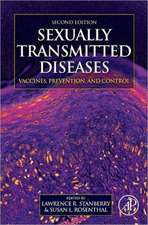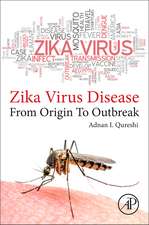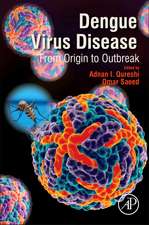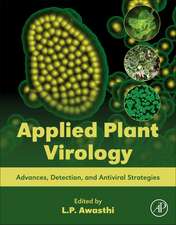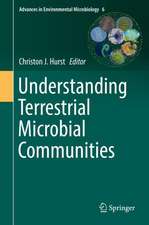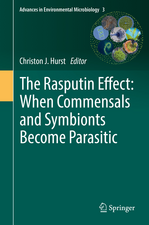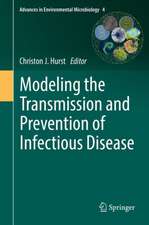Viral Ecology
Editat de Christon J. Hursten Limba Engleză Hardback – mai 2000
- The relationship between viruses and their hosting species
- The concept that viral interactions with their hosts represents a highly evolved aspect of organismal biology
- The types of transmission cycles which exist for viruses, including their hosts, vectors, and vehicles
- The concept that viral infections represent areas of overlap in the ecology of the viruses, their hosts, and their vectors
Preț: 1410.27 lei
Preț vechi: 1931.86 lei
-27% Nou
Puncte Express: 2115
Preț estimativ în valută:
269.89€ • 280.73$ • 222.81£
269.89€ • 280.73$ • 222.81£
Carte tipărită la comandă
Livrare economică 14-28 aprilie
Preluare comenzi: 021 569.72.76
Specificații
ISBN-13: 9780123626752
ISBN-10: 0123626757
Pagini: 656
Ilustrații: Illustrations
Dimensiuni: 152 x 229 x 47 mm
Greutate: 1.06 kg
Ediția:New.
Editura: ELSEVIER SCIENCE
ISBN-10: 0123626757
Pagini: 656
Ilustrații: Illustrations
Dimensiuni: 152 x 229 x 47 mm
Greutate: 1.06 kg
Ediția:New.
Editura: ELSEVIER SCIENCE
Public țintă
Virologists,microbiologists, microbial ecologists, ecologists,
pathologists, zoologists, plant researchers, and upper-level undergraduate students
Recenzii
"...a wide array of authors from all sorts of disciplines (including aquatic microbiology, medicine, veterinary medicine, and plant sciences) come together to create this volume. ...the information that is presented and the manner in which it is presented will optimize the utility for ecologists and perhaps encourage further exploration of viral ecology." --Laura G. Leff, Kent State University, in ECOLOGY (February 2001)
"....excellently organized and clearly communicates the different 'strategies' and their ecological/evolutionary rationales. Useful reading for any general biologist and should probably be required reading for medical students to help them understand the dynamic and shifting nature of viral disease. My general impression is that the book fills an important new conceptual niche and that microbiologists or other biologists interested in communicating ecological and evolutionary principles in the context of such a versatile class of organisms would be able to use this book as a text for a heterogeneous class of advanced students. [The authors] will help people focus on broader issue and roles of viruses rather than just as pathogens and tools." --Gregory S. Whitt, University of Illinois, Department of Ecology, Ethology and Evolution
"....excellently organized and clearly communicates the different 'strategies' and their ecological/evolutionary rationales. Useful reading for any general biologist and should probably be required reading for medical students to help them understand the dynamic and shifting nature of viral disease. My general impression is that the book fills an important new conceptual niche and that microbiologists or other biologists interested in communicating ecological and evolutionary principles in the context of such a versatile class of organisms would be able to use this book as a text for a heterogeneous class of advanced students. [The authors] will help people focus on broader issue and roles of viruses rather than just as pathogens and tools." --Gregory S. Whitt, University of Illinois, Department of Ecology, Ethology and Evolution



